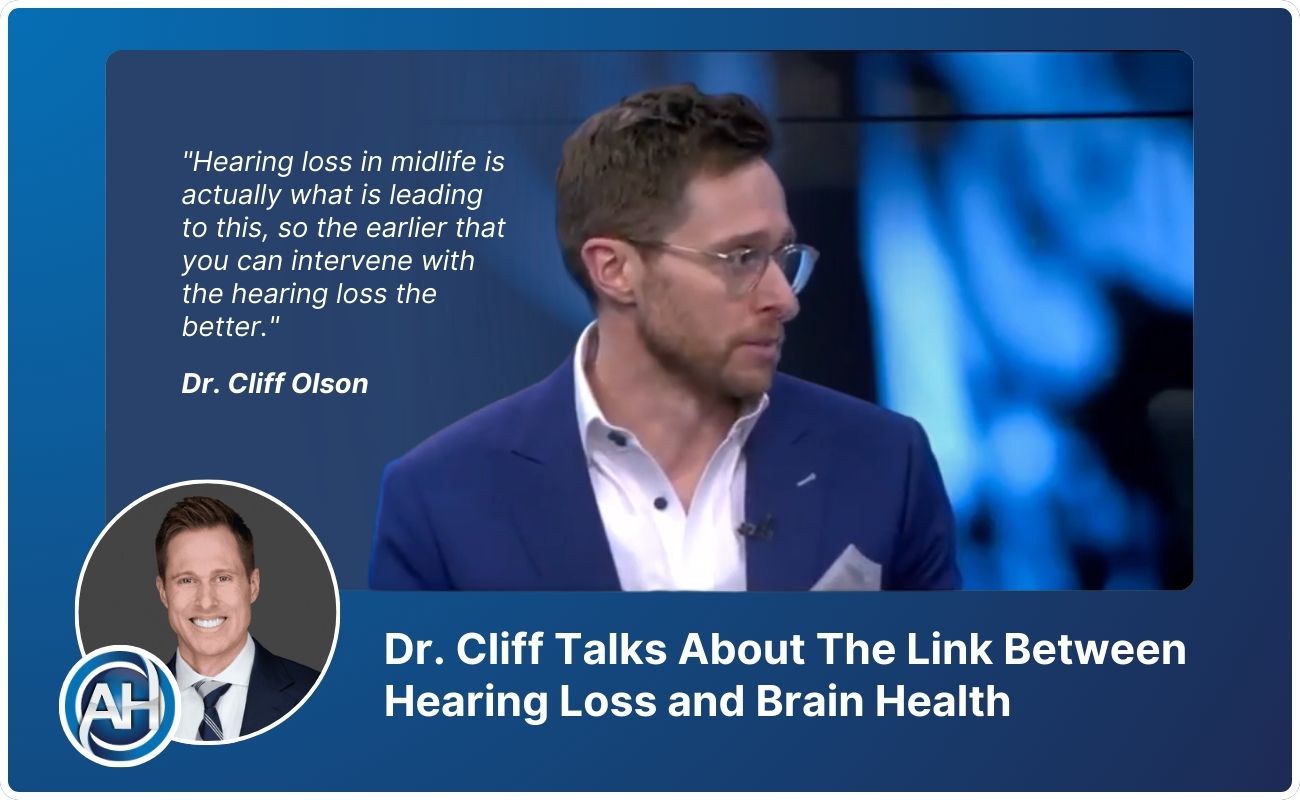
Thinking About Putting Off Hearing Aids? Think Again
Delaying hearing aid treatment causes auditory deprivation and brain changes that make future hearing aid adaptation more difficult and less effective.
Integrate your CRM with other tools
Lorem ipsum dolor sit amet, consectetur adipiscing elit lobortis arcu enim urna adipiscing praesent velit viverra sit semper lorem eu cursus vel hendrerit elementum morbi curabitur etiam nibh justo, lorem aliquet donec sed sit mi dignissim at ante massa mattis.
- Neque sodales ut etiam sit amet nisl purus non tellus orci ac auctor
- Adipiscing elit ut aliquam purus sit amet viverra suspendisse potenti
- Mauris commodo quis imperdiet massa tincidunt nunc pulvinar
- Adipiscing elit ut aliquam purus sit amet viverra suspendisse potenti
How to connect your integrations to your CRM platform?
Vitae congue eu consequat ac felis placerat vestibulum lectus mauris ultrices cursus sit amet dictum sit amet justo donec enim diam porttitor lacus luctus accumsan tortor posuere praesent tristique magna sit amet purus gravida quis blandit turpis.

Techbit is the next-gen CRM platform designed for modern sales teams
At risus viverra adipiscing at in tellus integer feugiat nisl pretium fusce id velit ut tortor sagittis orci a scelerisque purus semper eget at lectus urna duis convallis. porta nibh venenatis cras sed felis eget neque laoreet suspendisse interdum consectetur libero id faucibus nisl donec pretium vulputate sapien nec sagittis aliquam nunc lobortis mattis aliquam faucibus purus in.
- Neque sodales ut etiam sit amet nisl purus non tellus orci ac auctor
- Adipiscing elit ut aliquam purus sit amet viverra suspendisse potenti venenatis
- Mauris commodo quis imperdiet massa at in tincidunt nunc pulvinar
- Adipiscing elit ut aliquam purus sit amet viverra suspendisse potenti consectetur
Why using the right CRM can make your team close more sales?
Nisi quis eleifend quam adipiscing vitae aliquet bibendum enim facilisis gravida neque. Velit euismod in pellentesque massa placerat volutpat lacus laoreet non curabitur gravida odio aenean sed adipiscing diam donec adipiscing tristique risus. amet est placerat.
“Nisi quis eleifend quam adipiscing vitae aliquet bibendum enim facilisis gravida neque velit euismod in pellentesque massa placerat.”
What other features would you like to see in our product?
Eget lorem dolor sed viverra ipsum nunc aliquet bibendum felis donec et odio pellentesque diam volutpat commodo sed egestas aliquam sem fringilla ut morbi tincidunt augue interdum velit euismod eu tincidunt tortor aliquam nulla facilisi aenean sed adipiscing diam donec adipiscing ut lectus arcu bibendum at varius vel pharetra nibh venenatis cras sed felis eget.
"I need to think about it." This phrase echoes through hearing aid clinics across the country every day, and it might be one of the most damaging decisions patients make regarding their hearing health. If you're considering postponing hearing aid treatment, you need to understand what this delay actually costs you—and why waiting makes everything worse.
Research shows that people typically wait seven years from first noticing hearing loss before seeking professional evaluation. Even more concerning, only 50% of individuals diagnosed with treatable hearing loss choose to address it with hearing aids. This statistic baffled us when we first learned it—who would delay treatment for a condition that significantly impacts communication and quality of life?
The Hidden Costs of Auditory Deprivation
Your brain responds to untreated hearing loss in ways that make future treatment more challenging. When you can't hear certain sounds, your brain undergoes structural changes to compensate for this auditory deprivation. Other brain regions work harder to fill in missing information, which isn't sustainable long-term.
The comprehension aspect of hearing loss deteriorates faster than the actual hearing thresholds. While your audiogram results may decline gradually, your ability to understand speech—especially in challenging environments—drops much more rapidly when hearing loss remains untreated.
This means the hearing aids that could help you today will be less effective if you wait several years. Your brain's ability to process amplified sound diminishes over time, making adaptation to hearing aids significantly more difficult later.
Why Patients Choose to Wait
We understand that receiving a hearing loss diagnosis can feel overwhelming. Many patients tell us they suspected hearing difficulties but weren't prepared to hear they needed hearing aids. This emotional response is natural, but it shouldn't drive treatment decisions.
Financial concerns often influence the decision to postpone treatment. However, lower-cost options exist, including warehouse clubs like Costco and nonprofit organizations that provide hearing aids at reduced or no cost. Even in countries where hearing aids are provided free to citizens, adoption rates are only marginally higher than in the United States.
Some patients worry about the stigma associated with hearing aids, though this concern has largely become obsolete. Modern hearing aids are nearly invisible, and many people wear them without any attempt to hide them. Most individuals have their own health challenges—hearing aids are simply one more way to maintain quality of life.
The Communication Cascade Effect
Untreated hearing loss creates a cascade of communication problems that extend far beyond simple difficulty hearing. Research demonstrates that individuals with untreated hearing loss experience higher rates of depression, social isolation, and reduced earning potential in their careers.
Professional success often depends on effective communication. Studies show people with untreated hearing loss typically earn less money and achieve lower career advancement compared to those who address their hearing loss promptly.
The social implications are equally concerning. As communication becomes more difficult, many people begin avoiding social situations, leading to isolation and reduced quality of life. Relationships suffer when one person struggles to participate fully in conversations.
The Dementia Connection
Recent research has established strong connections between untreated hearing loss and accelerated cognitive decline, potentially leading to dementia. While we don't recommend treating hearing loss solely due to dementia fears, this research underscores the importance of maintaining auditory input to your brain.
When your brain doesn't receive adequate auditory stimulation, it must work harder to process what you do hear. This increased cognitive load may contribute to faster mental fatigue and reduced cognitive reserve over time.
Treating hearing loss helps maintain normal auditory pathways to the brain, potentially preserving cognitive function and reducing the risk of accelerated mental decline.
Why Our Treatment Acceptance Rate Differs
Our practice achieves a 90% treatment acceptance rate, significantly higher than the industry average of 50%. This didn't happen overnight—early in Dr. Cliff's career, his acceptance rate was essentially 0% because he struggled to communicate the urgency of hearing loss treatment.
The key difference lies in helping patients understand the emotional and practical impact of their hearing loss, not just the clinical measurements. We spend considerable time explaining how untreated hearing loss affects daily life and what happens when treatment is delayed.
People make emotional decisions, not purely logical ones. If everyone made logical decisions about hearing loss, treatment acceptance rates would be nearly 100% because the negative consequences of waiting are so significant.
The Professional Communication Challenge
We believe the hearing care profession bears responsibility for low treatment acceptance rates. Many providers inadequately communicate the urgency of treating hearing loss and the consequences of delay.
Patients who have already lived with hearing loss for several years are experiencing ongoing auditory deprivation. Yet many hearing care professionals fail to articulate the potential negative ramifications of continuing on this path.
At Applied Hearing Solutions, we've invested heavily in training our team to effectively communicate the value of hearing treatment. We don't want patients leaving our office saying they need to go home and think about it, because we know what typically happens next—nothing.
Our Applied360 Approach to Education
Our Applied360 Discover consultation provides comprehensive education about your specific hearing loss and treatment options. We take time to explain how your hearing loss currently impacts your life and what you can expect if treatment is delayed.
This detailed consultation helps you understand not just what your audiogram shows, but how your hearing loss affects communication in various environments. We discuss realistic expectations for hearing aid treatment and address concerns about the adjustment process.
By the end of this consultation, most patients have a clear understanding of their hearing loss and feel confident about moving forward with treatment. This educational approach leads to better outcomes and higher satisfaction.
The Success Story Difference
Patients who wait decades to treat hearing loss typically struggle significantly with hearing aids. They've essentially compromised their brain's ability to process amplified sound through years of auditory deprivation.
Conversely, patients who address hearing loss promptly generally adapt more easily to hearing aids and achieve better outcomes. Their brains haven't undergone the structural changes associated with prolonged auditory deprivation.
The difference in treatment success between early and delayed intervention is dramatic. This is why we emphasize the importance of addressing hearing loss as soon as it's identified rather than waiting for it to worsen.
Making the Decision Today
If you're reading this and thinking you need more time to decide about hearing aid treatment, consider what that delay actually costs you. Every day of untreated hearing loss represents ongoing auditory deprivation and potential communication missed with family and friends.
The financial investment in hearing aids pales in comparison to the cost of continued social isolation, reduced career advancement, and deteriorating relationships. Quality of life improvements from properly fitted hearing aids typically far exceed the initial investment.
Don't let fear or procrastination rob you of better hearing and improved communication. The longer you wait, the more challenging successful hearing aid treatment becomes.
Take Action with Applied Hearing Solutions
Our team understands the emotional aspects of hearing loss diagnosis and treatment decisions. We're committed to providing the education and support you need to make confident choices about your hearing health.
If you've been putting off addressing your hearing loss, we encourage you to schedule an Applied360 Discover consultation. This comprehensive evaluation will provide clear answers about your hearing and treatment options, helping you move forward with confidence.
Contact Applied Hearing Solutions at (602) 877-0000 to schedule your consultation. Don't let another day pass wondering if you should be hearing better—let us help you discover what improved hearing can do for your quality of life.




